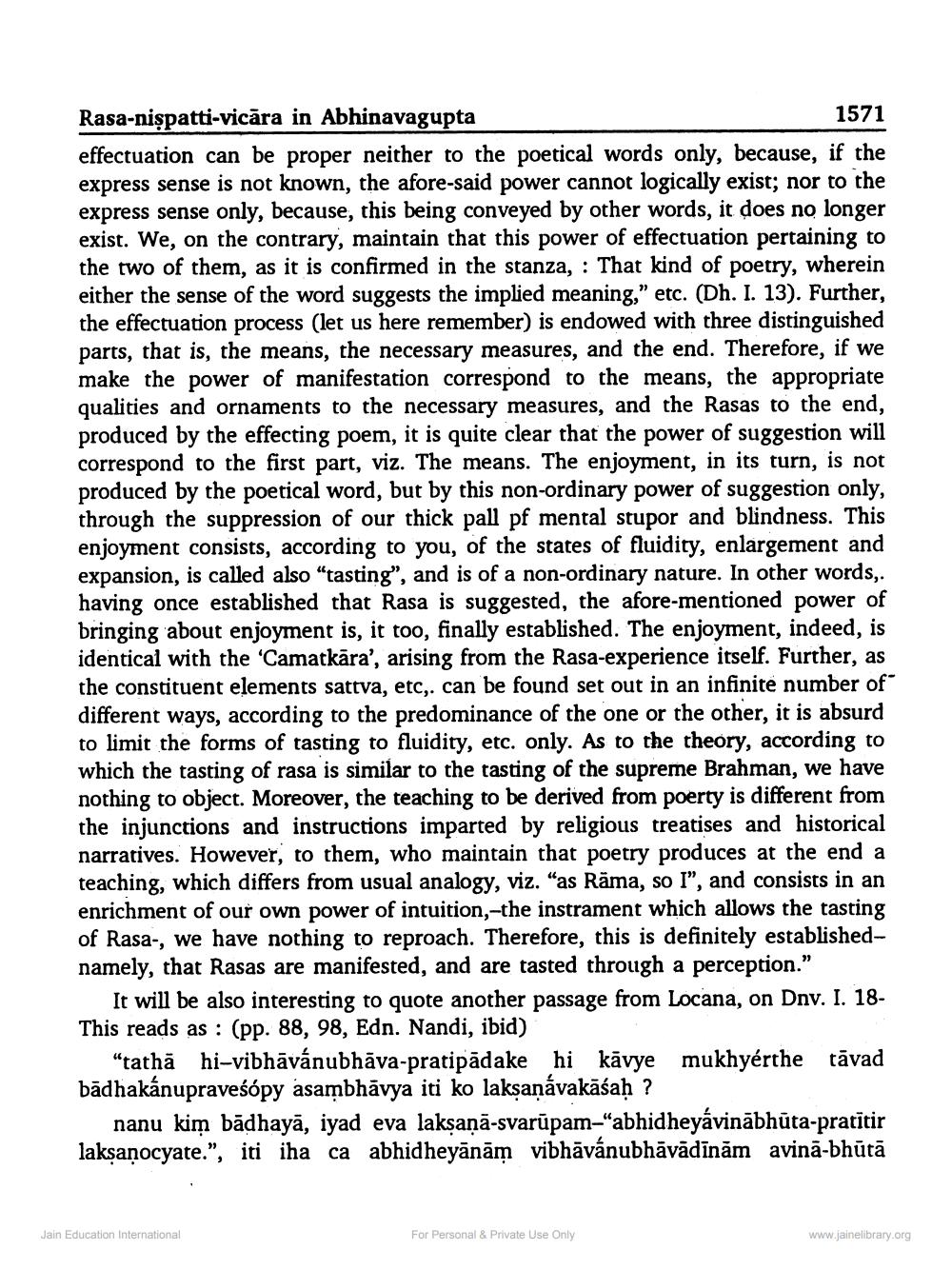________________
Rasa-nispatti-vicāra in Abhinavagupta
1571 effectuation can be proper neither to the poetical words only, because, if the express sense is not known, the afore-said power cannot logically exist; nor to the express sense only, because, this being conveyed by other words, it does no longer exist. We, on the contrary, maintain that this power of effectuation pertaining to the two of them, as it is confirmed in the stanza, : That kind of poetry, wherein either the sense of the word suggests the implied meaning,” etc. (Dh. I. 13). Further, the effectuation process (let us here remember) is endowed with three distinguished parts, that is, the means, the necessary measures, and the end. Therefore, if we make the power of manifestation correspond to the means, the appropriate qualities and ornaments to the necessary measures, and the Rasas to the end, produced by the effecting poem, it is quite clear that the power of suggestion will correspond to the first part, viz. The means. The enjoyment, in its turn, is not produced by the poetical word, but by this non-ordinary power of suggestion only, through the suppression of our thick pall pf mental stupor and blindness. This enjoyment consists, according to you, of the states of fluidity, enlargement and expansion, is called also "tasting", and is of a non-ordinary nature. In other words, having once established that Rasa is suggested, the afore-mentioned power of bringing about enjoyment is, it too, finally established. The enjoyment, indeed, is identical with the 'Camatkāra', arising from the Rasa-experience itself. Further, as the constituent elements sattva, etc, can be found set out in an infinite number of different ways, according to the predominance of the one or the other, it is absurd to limit the forms of tasting to fluidity, etc. only. As to the theory, according to which the tasting of rasa is similar to the tasting of the supreme Brahman, we have nothing to object. Moreover, the teaching to be derived from poerty is different from the injunctions and instructions imparted by religious treatises and historical narratives. However, to them, who maintain that poetry produces at the end a teaching, which differs from usual analogy, viz. “as Räma, so I”, and consists in an enrichment of our own power of intuition,-the instrament which allows the tasting of Rasa-, we have nothing to reproach. Therefore, this is definitely establishednamely, that Rasas are manifested, and are tasted through a perception."
It will be also interesting to quote another passage from Locana, on Dnv. I. 18This reads as : (pp. 88, 98, Edn. Nandi, ibid)
"tathā hi-vibhāvánubhāva-pratipādake hi kāvye mukhyérthetāvad bādhakanupraveśópy asambhāvya iti ko lakṣaṇávakāśaḥ ?
nanu kim bādhayā, iyad eva laksaņā-svarūpam-"abhidheyávinābhūta-pratītir laksaņocyate.", iti iha ca abhidheyānām vibhāvánubhāvādīnām avinā-bhūtā
Jain Education International
For Personal & Private Use Only
www.jainelibrary.org




